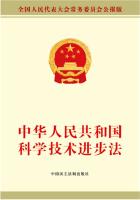Two or three days were consumed in organizing the Convention--electing officers, considering the delegates' credentials, and adopting rules of procedure; and when these necessary preliminaries had been accomplished the main business was opened with the presentation by the Virginia delegation of a series of resolutions providing for radical changes in the machinery of the Confederation. The principal features were the organization of a legislature of two houses proportional to population and with increased powers, the establishment of a separate executive, and the creation of an independent judiciary.
This was in reality providing for a new government and was probably quite beyond the ideas of most of the members of the Convention, who had come there under instructions and with the expectation of revising the Articles of Confederation. But after the Virginia Plan had been the subject of discussion for two weeks so that the members had become a little more accustomed to its proposals, and after minor modifications had been made in the wording of the resolutions, the Convention was won over to its support. To check this drift toward radical change the opposition headed by New Jersey and Connecticut presented the so-called New Jersey Plan, which was in sharp contrast to the Virginia Resolutions, for it contemplated only a revision of the Articles of Confederation, but after a relatively short discussion, the Virginia Plan was adopted by a vote of seven States against four, with one State divided.
The dividing line between the two parties or groups in the Convention had quickly manifested itself. It proved to be the same line that had divided the Congress of the Confederation, the cleavage between the large States and the small States. The large States were in favor of representation in both houses of the legislature according to population, while the small States were opposed to any change which would deprive them of their equal vote in Congress, and though outvoted, they were not ready to yield. The Virginia Plan, and subsequently the New Jersey Plan, had first been considered in committee of the whole, and the question of "proportional representation," as it was then called, would accordingly come up again in formal session. Several weeks had been occupied by the proceedings, so that it was now near the end of June, and in general the discussions had been conducted with remarkably good temper. But it was evidently the calm before the storm. And the issue was finally joined when the question of representation in the two houses again came before the Convention. The majority of the States on the 29th of June once more voted in favor of proportional representation in the lower house. But on the question of the upper house, owing to a peculiar combination of circumstances--the absence of one delegate and another's change of vote causing the position of their respective States to be reversed or nullified--the vote on the 2d of July resulted in a tie. This brought the proceedings of the Convention to a standstill. A committee of one member from each State was appointed to consider the question, and, "that time might be given to the Committee, and to such as chose to attend to the celebration on the anniversary of Independence, the Convention adjourned" over the Fourth. The committee was chosen by ballot, and its composition was a clear indication that the small-State men had won their fight, and that a compromise would be effected.
It was during the debate upon this subject, when feeling was running high and when at times it seemed as if the Convention in default of any satisfactory solution would permanently adjourn, that Franklin proposed that "prayers imploring the assistance of Heaven . . . be held in this Assembly every morning."
Tradition relates that Hamilton opposed the motion. The members were evidently afraid of the impression which would be created outside, if it were suspected that there were dissensions in the Convention, and the motion was not put to a vote.















